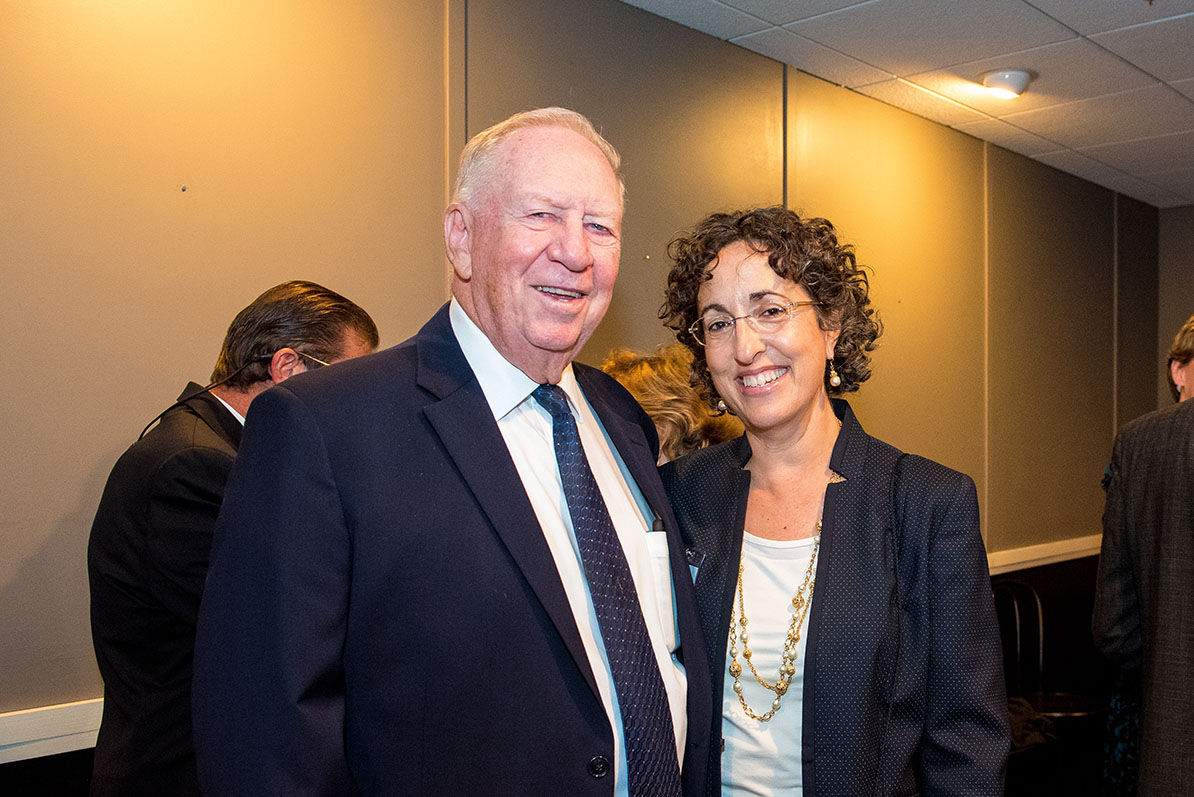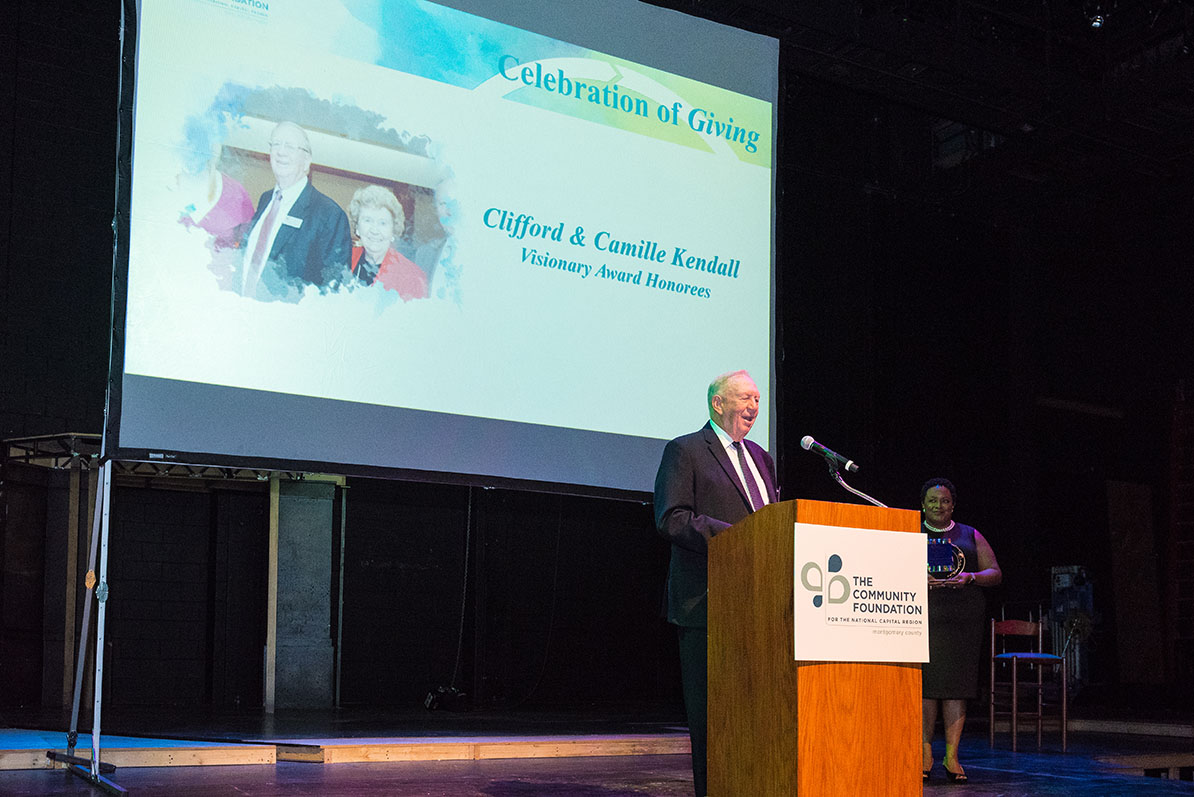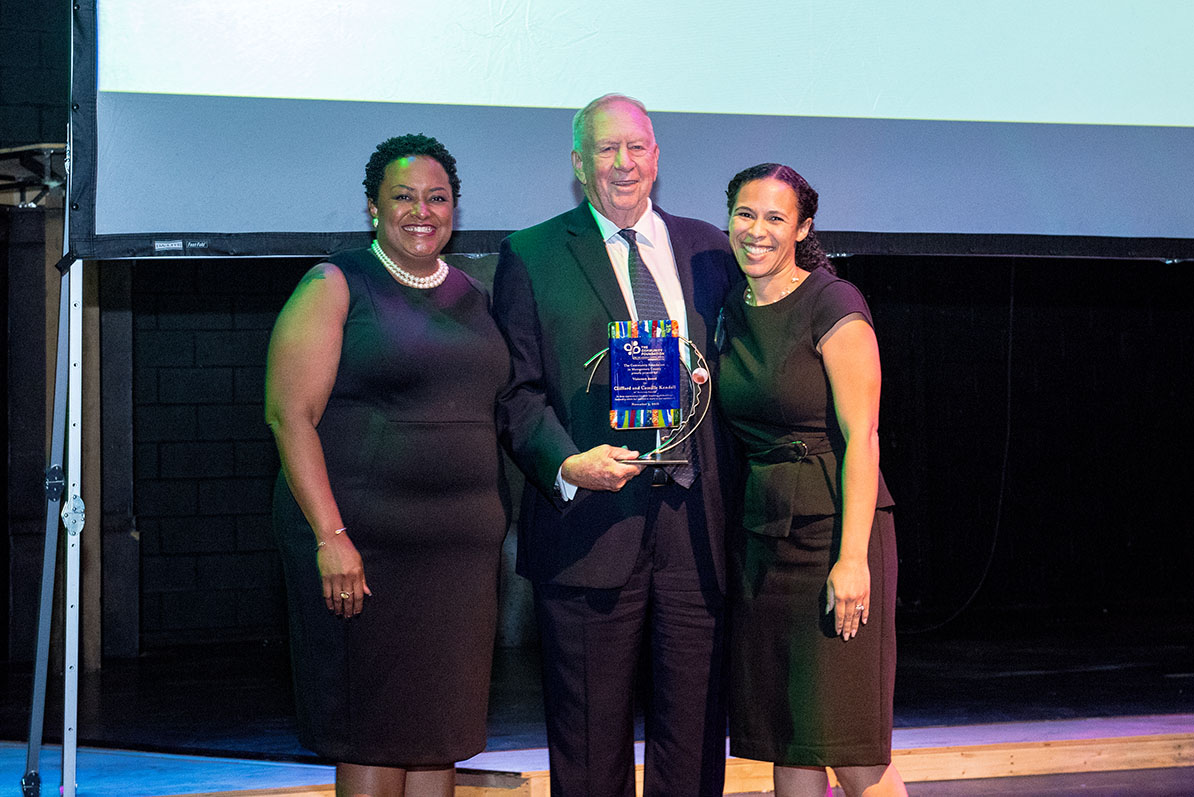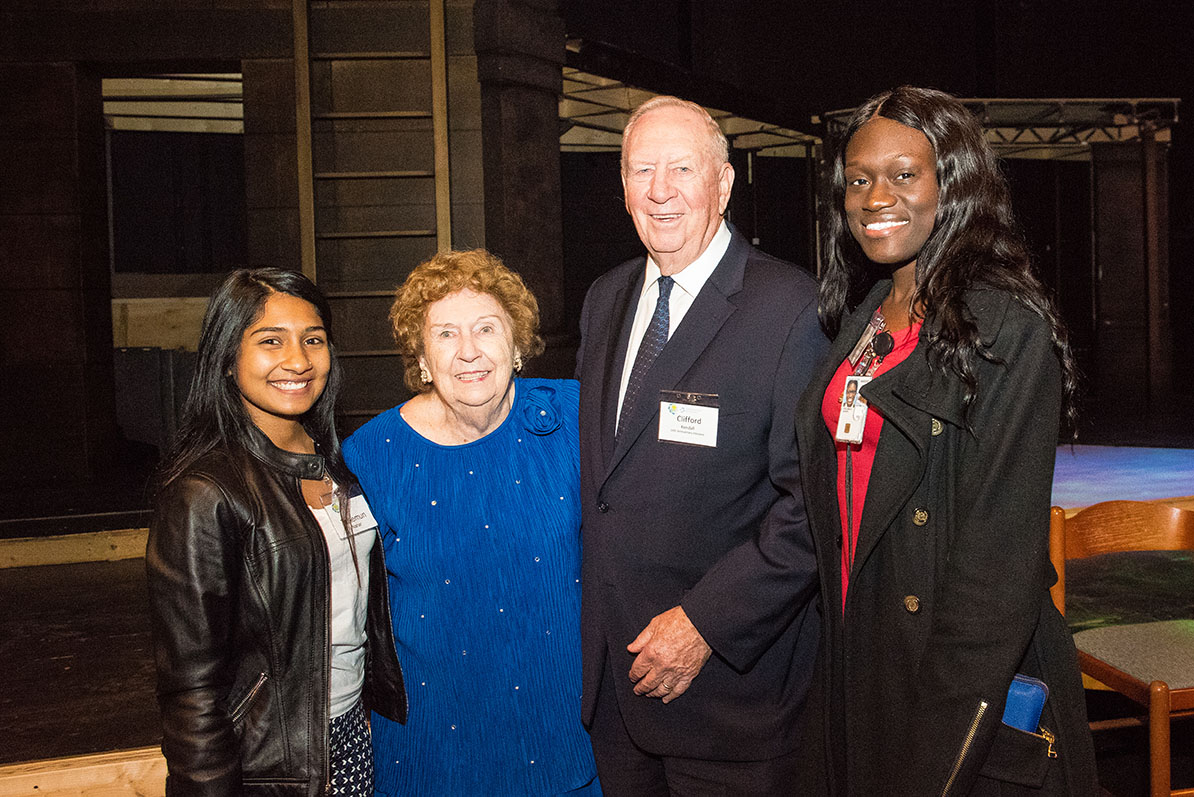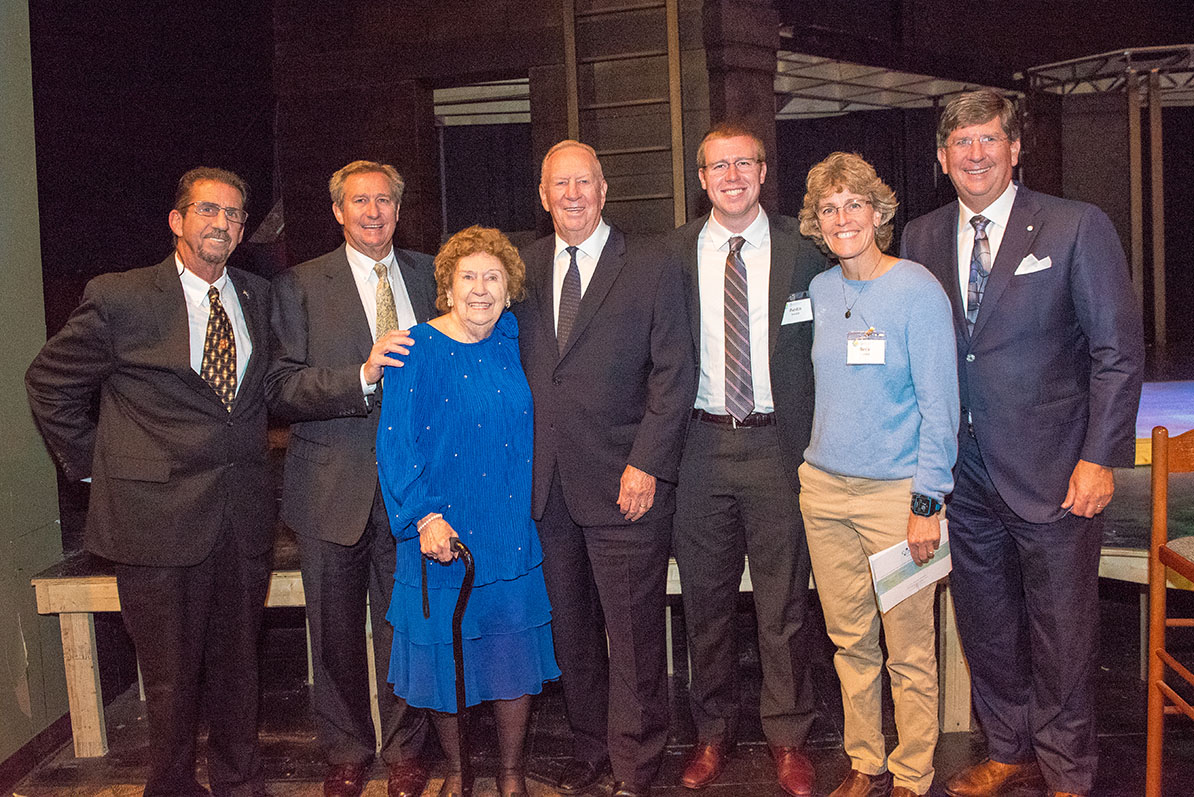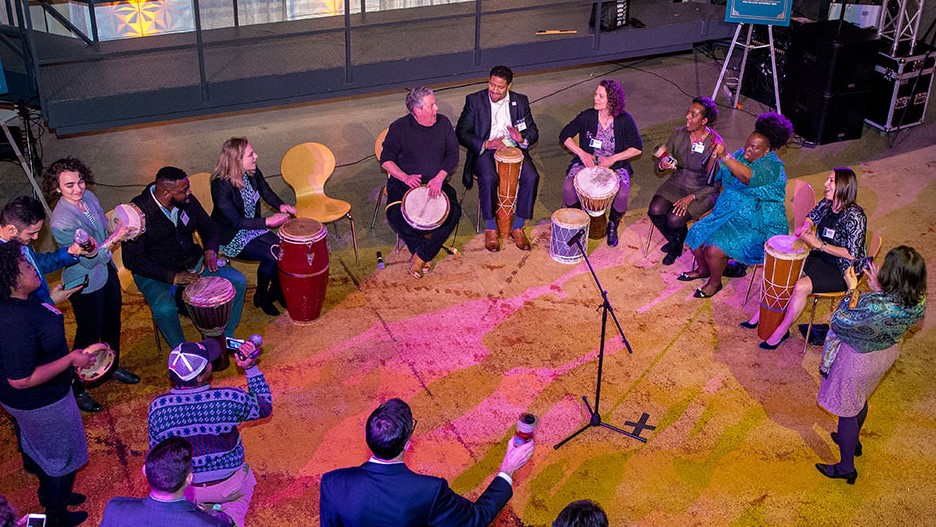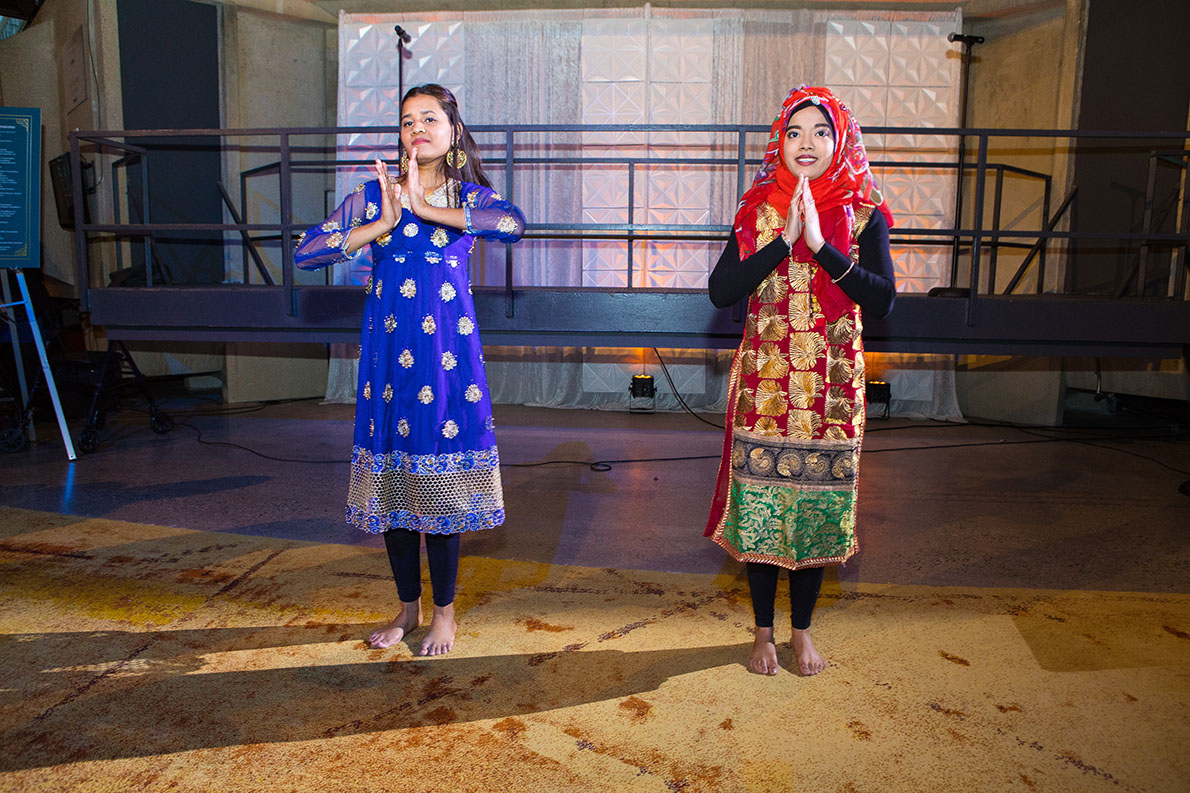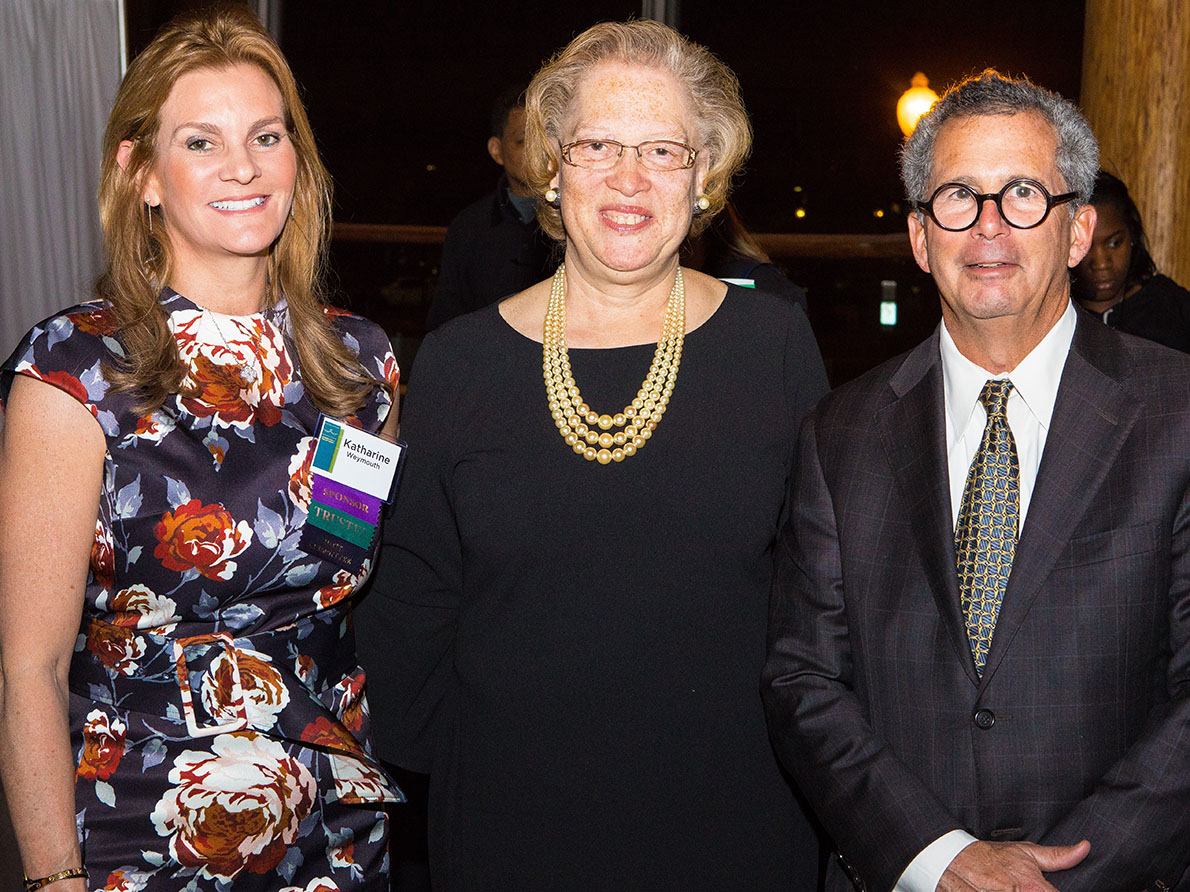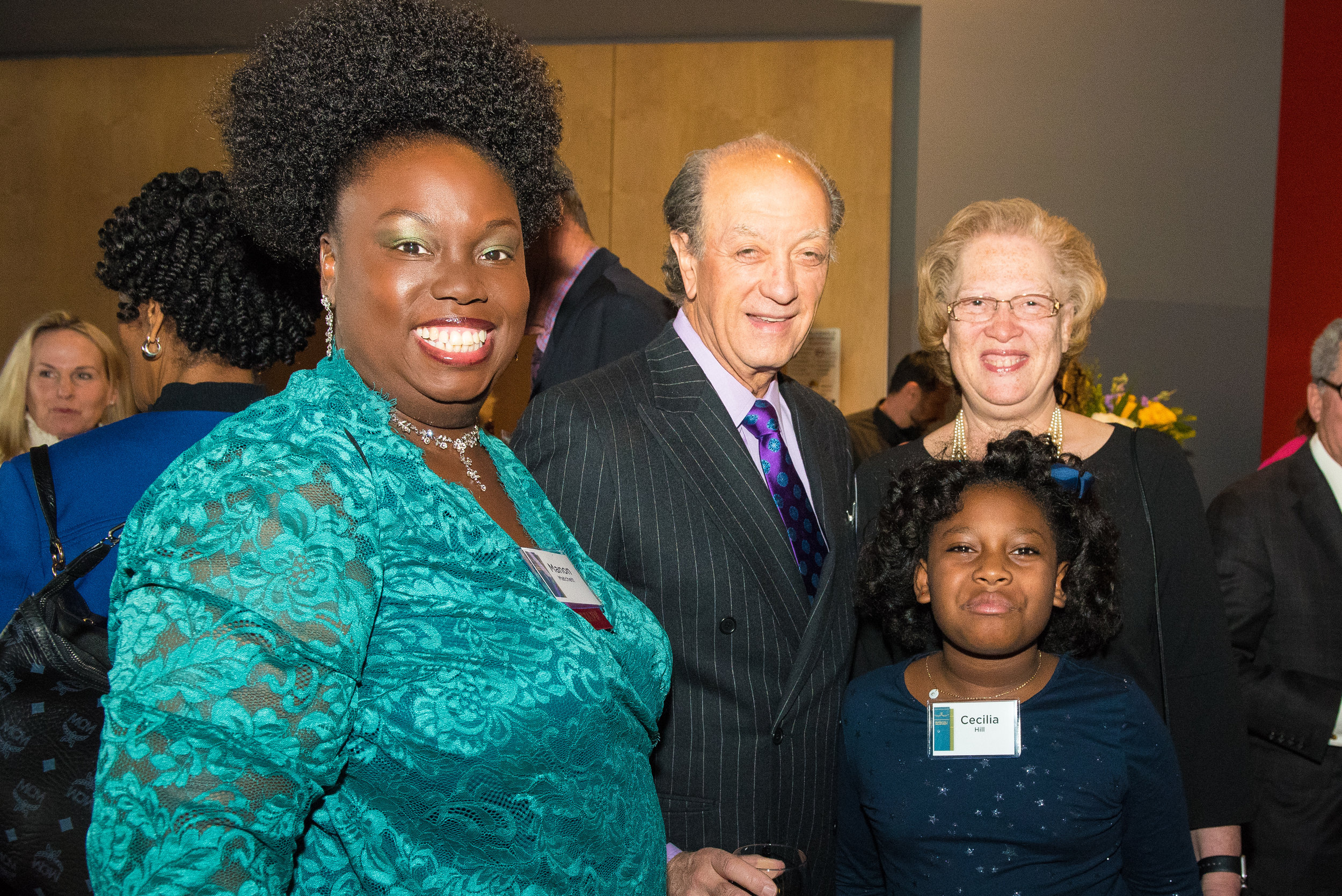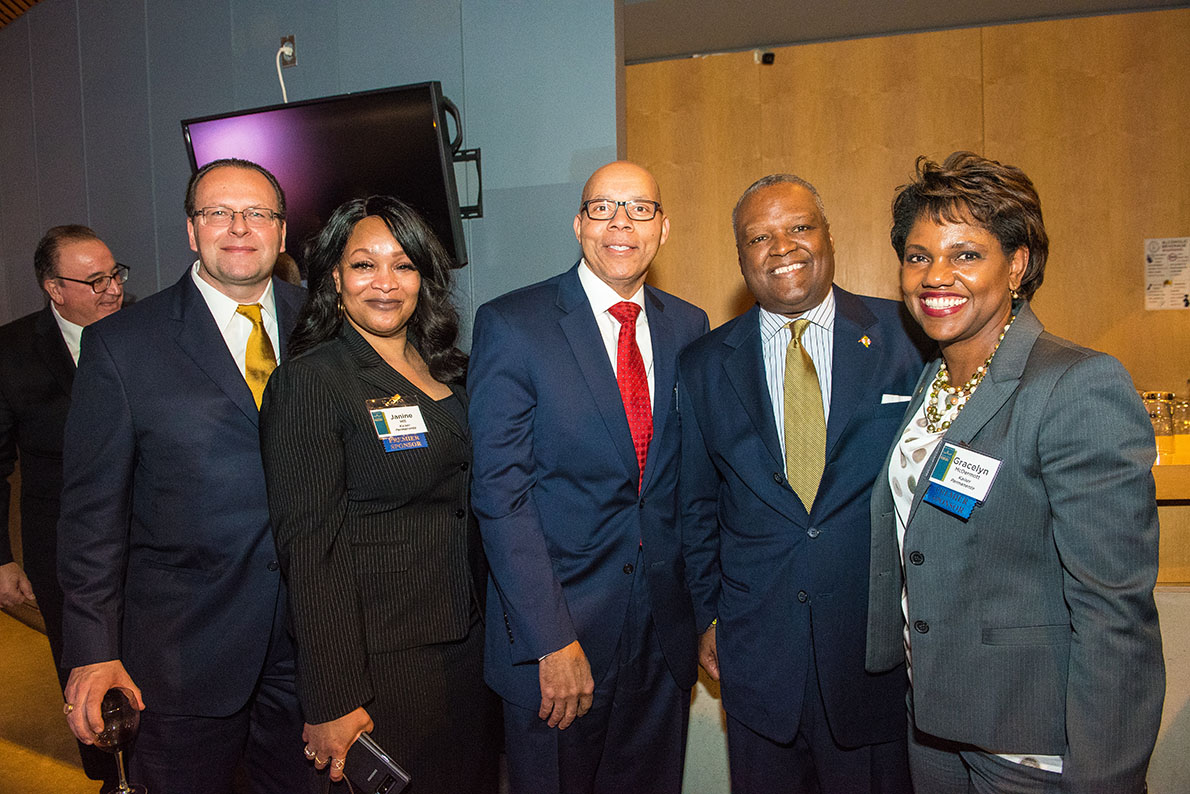Official Portrait of Barbara Pierce Bush, taken in the residence of the White House, 1989
Photo credit: George Bush Presidential Library and Museum
While former First Lady Barbara Bush had many passions, none was more personally identified with her than teaching children and their parents to read. More than 25 years after leaving the White House, Mrs. Bush’s legacy continues through the Barbara Bush Foundation for Family Literacy which focuses on breaking the intergenerational cycle of illiteracy by developing and supporting family literacy programs.
All of us at The Community Foundation were deeply saddened to learn of her recent passing. The Community Foundation was proud and honored to be the home of her Foundation for more than two decades. We will remember Mrs. Bush’s passion, leadership and devotion to fostering family literacy.
Aware of The Community Foundation’s successful record of managing charitable funds for other national figures, in 1989 Mrs. Bush asked the Foundation to help establish her literacy organization. She was drawn to The Community Foundation because of our previous work with Former First Lady Nancy Reagan, who established a fund in 1985 to support anti-drug abuse programs dealing with the increase in drug use among the nation’s youth.
“The Community Foundation structure was uniquely suited to our needs,” said Benita Somerfield, Founding Executive Director of the Barbara Bush Foundation, adding that Mrs. Bush valued the high rate of return on investments, and knowing that assets go toward literacy programs, not overhead.
Since its creation, the Foundation has been sharply focused on its core mission: “to establish literacy as a value in every family in America, by helping every family in the nation understand that the home is the child’s first school, that the parent is the child’s first teacher, and that reading is the child’s first subject.”
Mrs. Bush firmly believed that family literacy programs help prepare children to start school ready to learn and that reading together brings families together. She also recognized how “literacy provides adults with the skills essential to getting a job, earning a paycheck, and attaining self-sufficiency.”
From 1989 through 2011, the Foundation awarded more than $40 million in grants to support the development and expansion of more than 900 literacy programs in 50 states and the District of Columbia. These community-based organizations and programs were found in schools, correctional facilities, homeless shelters, libraries, faith-based organizations and other nonprofit agencies.
“We would not be able to thrive and grow the way we have without the support and fine work of The Community Foundation,” Mrs. Bush said in 2003.
Ms. Somerfield credited The Community Foundation with helping to make Mrs. Bush’s vision possible by providing transparent and efficient back office support and grants administration. This included providing administrative support for the Foundation’s signature National Grant Program, where organizations across the country applied for highly competitive grants, and State Initiatives with grantmaking focused on Maine, Texas, Florida, and Maryland.
Although The Community Foundation is no longer the home of the Barbara Bush Foundation, her literacy legacy lives on. You can find more information at www.barbarabushlegacy.org. The Foundation is inviting anyone interested in honoring her legacy to share a personal tribute or make a memorial donation.


![Nicky+Goren_credit+Lisa+Helfert[1].jpg](https://images.squarespace-cdn.com/content/v1/58f791ec37c58188d411874a/1522848227229-DEDSCE0FKGH75WC8U6SW/Nicky%2BGoren_credit%2BLisa%2BHelfert%5B1%5D.jpg)
![2317+-+Bruce+McNamer+-+Sitting[2].jpg](https://images.squarespace-cdn.com/content/v1/58f791ec37c58188d411874a/1522848380041-GLNV5WEAGMP7YPJZDXRR/2317%2B-%2BBruce%2BMcNamer%2B-%2BSitting%5B2%5D.jpg)
